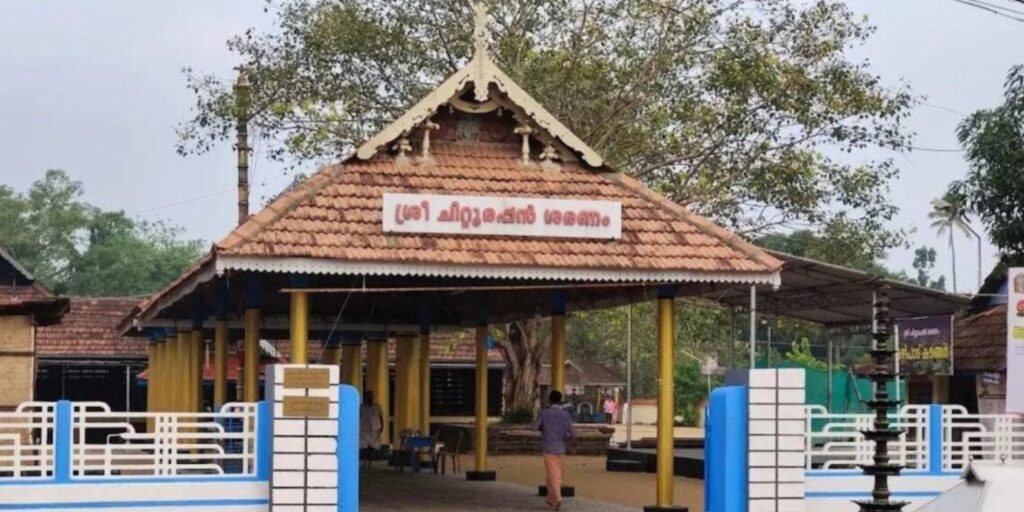Welcome to the serene realms of devotion at Chittoor Temple, nestled in the quaint town of Chittoor Ernakulam.
Revered as a sacred abode of spirituality, the Temple, also affectionately known as Thekken Guruvayoor, stands as a beacon of divine grace in the hearts of devotees.
At its core lies the enchanting presence of Chittoorappan, the divine incarnation of Lord Guruvayoorappan from the revered Guruvayoor Temple.
This sanctum, pulsating with celestial vibrations, beckons pilgrims from far and wide to bask in its divine aura and seek solace in prayer.
Each corner resonates with centuries of devotion, echoing the timeless tales of Krishna’s divine play.
From the intricately adorned sanctum to the serene ambiance that envelops the temple premises.
Every facet of Chittoor Temple exudes an air of sanctity and serenity of famous cities in Kerala.
1. History
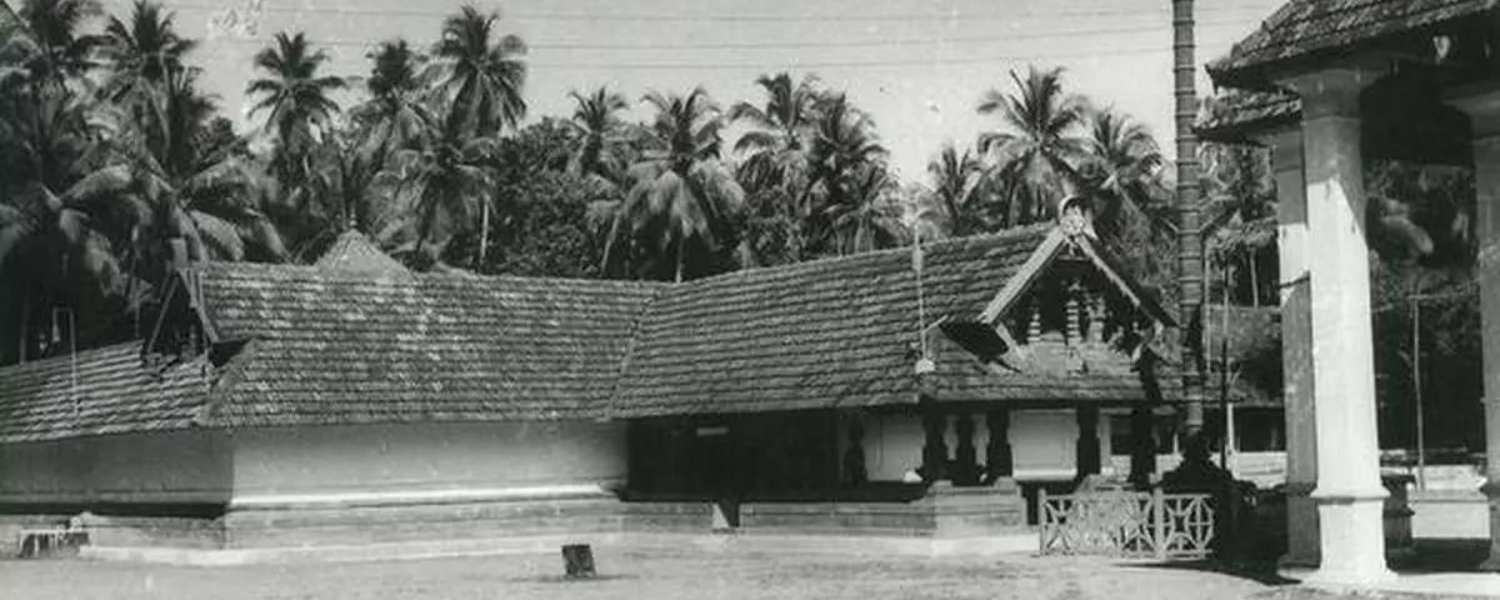
The captivating history of Chittoor Temple traces its origins to the 13th century.
Constructed under the patronage of the Cheranelloor Swaroopam – Cheranelloor Karthas, who held significant influence as the local rulers.
this Temple is a testament to their devotion and architectural prowess.
The Cheranelloor Karthas, distinguished by their title ‘Martha,’ were esteemed figures within the community.
Through their efforts, the Temple flourished as a religious and cultural significance center, drawing devotees from far and wide.
Throughout the ages, the Temple has observed the passing of time, surviving various socio-political upheavals while retaining its spiritual essence.
Today, it continues to serve as a revered sanctuary, preserving the rich heritage and traditions of the region.
With its ancient roots deeply embedded in history, the Temple remains a cherished landmark, embodying the enduring legacy of faith and reverence.
2. Architecture
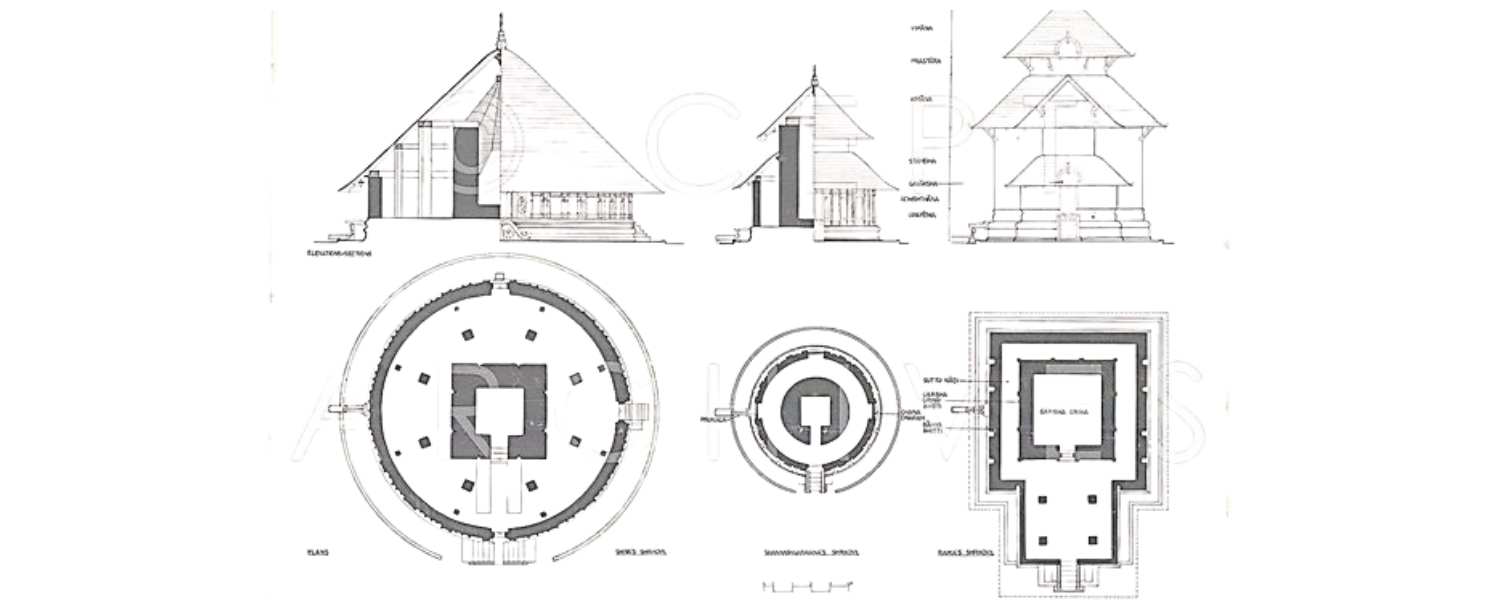
The Chittoor Temple, a sacred sanctuary in the heart of its namesake town, boasts a unique architectural marvel that draws devotees from far and wide.
At its core lies the sreekovil, the sanctum sanctorum, a square structure crowned with a majestic pyramidal roof adorned with copper plates.
This architectural spectacle stands as a testament to its creators’ ancient craftsmanship and devotion.
Central to the Temple’s sanctum is the divine idol of Lord Krishna, reminiscent of the revered figure at Guruvayoor.
This captivating idol, facing the east, stands tall in a standing posture.
with four divine arms bearing symbols of his divine prowess: the Panchajanyam conch, Sudarshana Chakra, Lotus, and Gada.
It is a sight to behold, radiating a serene aura that envelops the devotees in a sense of peace and reverence.
The Temple stands not only as a place of worship but also as a beacon of architectural brilliance and spiritual enlightenment.
Inviting all to bask in its divine ambiance and seek solace in the presence of the Almighty.
3. Religious Significance
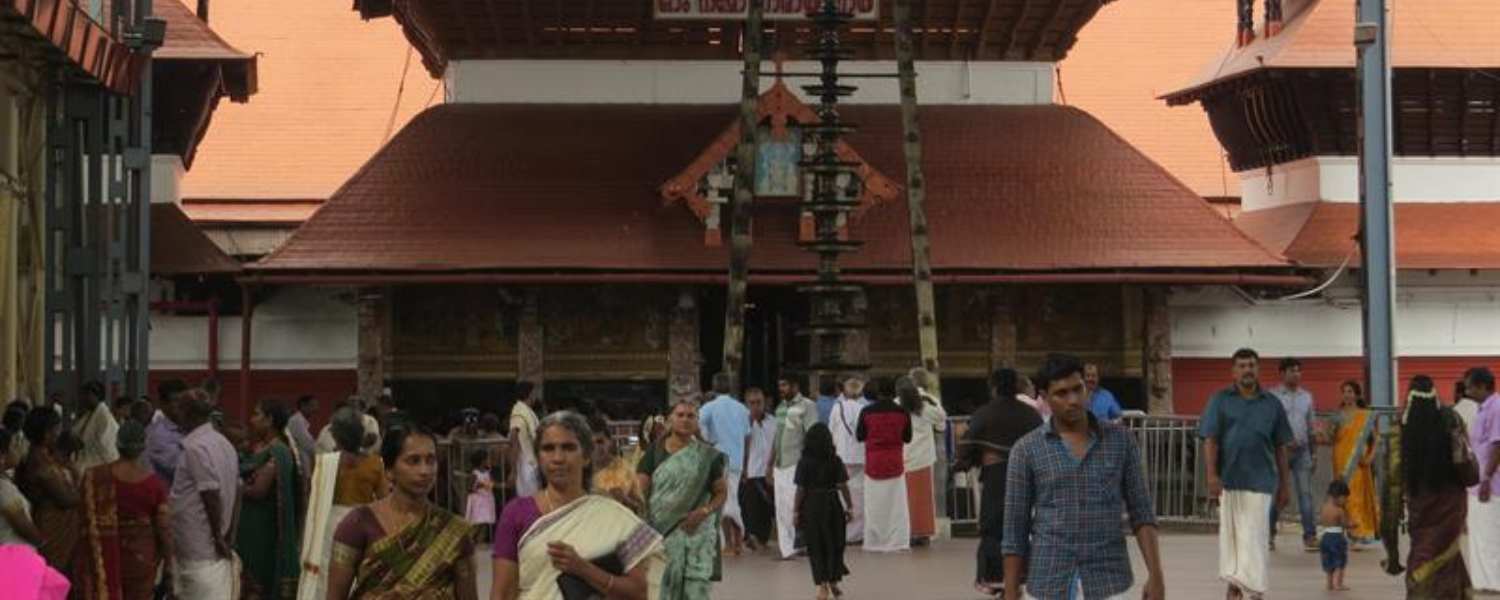
Nestled in the heart of Chittoor, a bustling transportation hub in southern India, lies a place of profound religious significance: the Chittoor Temple.
Beyond its practical role as a node on the north-south rail line and a nexus for east-west road connections to Chennai and Bengaluru, Chittoor is revered for its spiritual heritage.
Pilgrims from far and comprehensive journey to this sacred site to pay homage to its revered deity and seek blessings for prosperity and well-being.
Amidst the city’s vibrant trade center and thriving industries like rice and oilseed milling, the Temple is a beacon of tranquility and devotion.
As worshippers flock to its hallowed halls, they also find solace in the surrounding hills, where Indian steatite, known as soapstone, is mined—a reminder of the earthly resources that sustain both body and soul.
In the rhythm of daily life, the Temple remains a timeless sanctuary, weaving together the threads of commerce and spirituality in the fabric of this dynamic city.
4. Festivals Celebrated
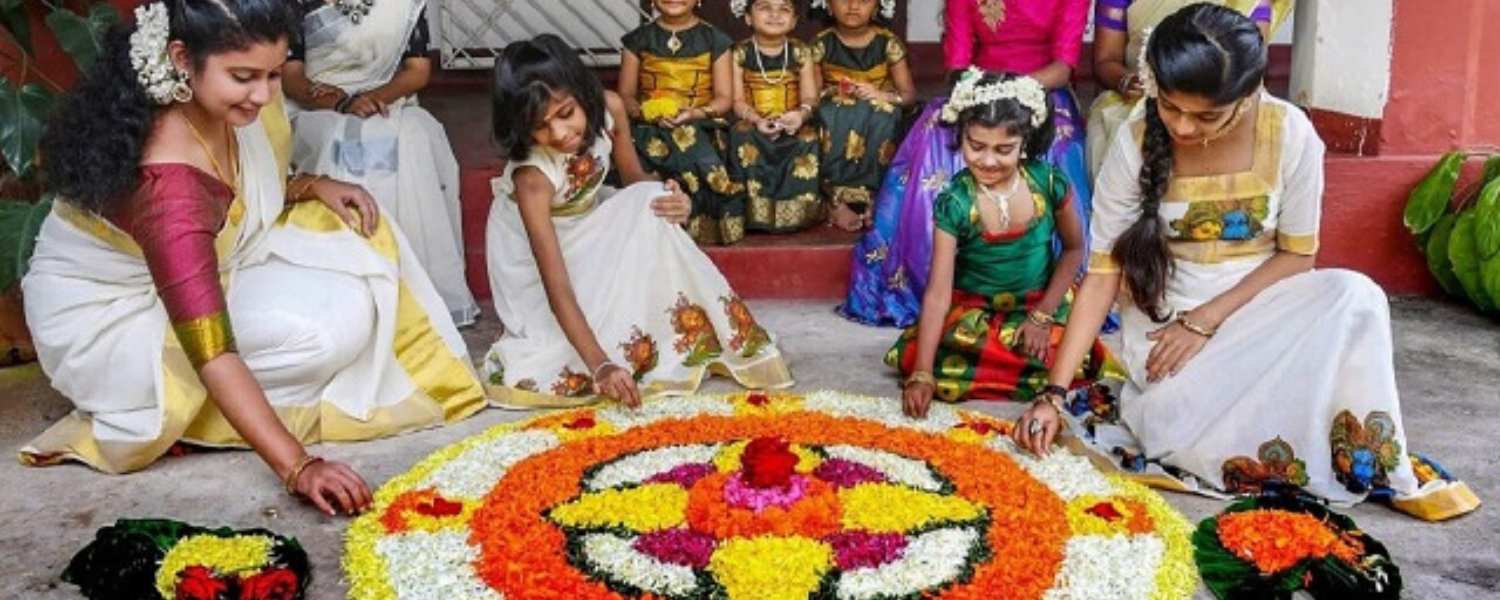
In the culturally vibrant district of Chittoor, festivals are not just events but extravagant celebrations that bring communities together in joyous harmony.
One of the most awaited occasions is the Kanuma festival, held during Sankranti, where the streets come alive with exuberant festivities.
Here, bulls take center stage, adorned in colorful decorations as they parade through the thoroughfares, captivating the hearts of onlookers.
In certain areas, the spectacle escalates as the tradition of bull chasing adds an exhilarating thrill to the proceedings.
Alongside this, Chittoor reverberates with the spirit of unity during Ramzan, Bakrid, and Christmas, as people from diverse backgrounds come together to observe and celebrate these significant occasions.
Amidst this rich tapestry of festivals, the sacred, A beacon of spiritual reverence, the Temple stands tall, drawing devotees from far and wide to partake in its divine aura.
You can even also explore Kerala beach no waves here.
5. Legends and Mythology
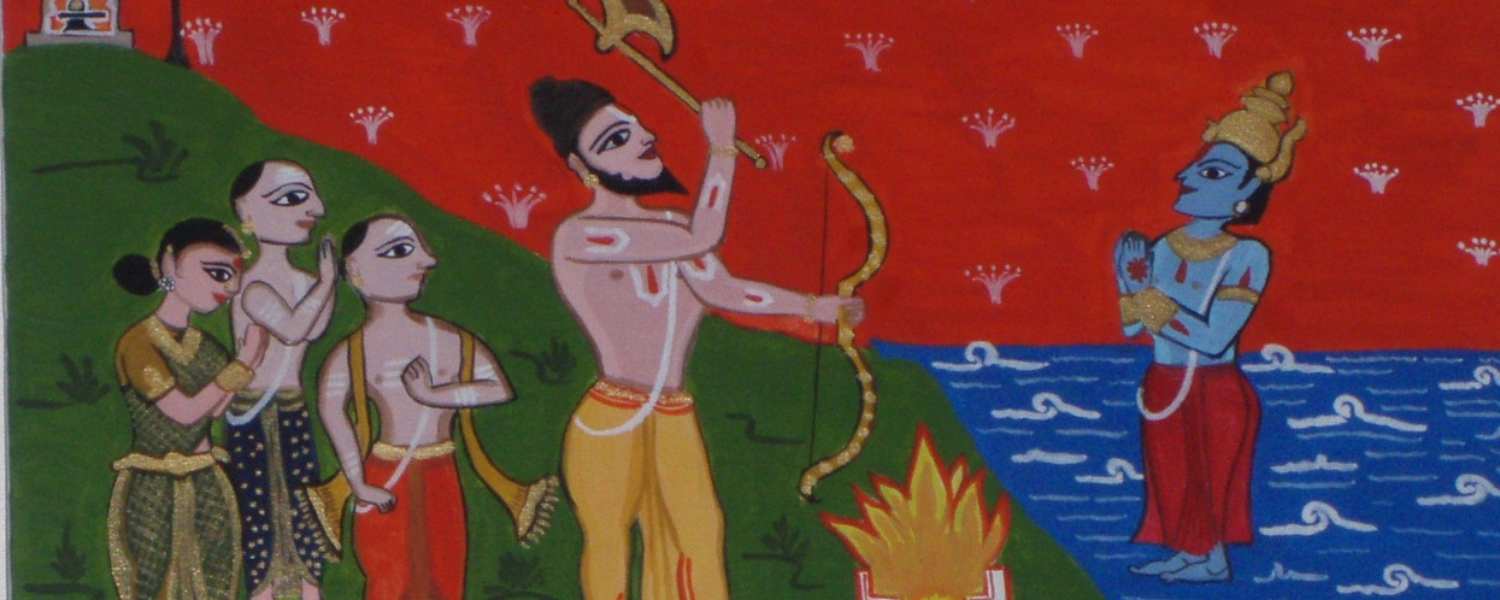
Nestled within the picturesque landscapes of the Chittoor region lies a treasure trove of spirituality and history, notably embodied by the illustrious Kanipakkam Vinayaka Temple.
Dating back to the eleventh century CE, this sacred sanctuary owes its existence to the visionary foresight of Kulothunga Chola I, a revered ruler of the Chola dynasty.
The Temple is a testament to architectural grandeur and unwavering devotion, drawing pilgrims and tourists from far and wide.
However, what sets the Kanipakkam temple apart is its legendary miracle idol, shrouded in mystical tales and revered by generations.
This divine artifact, believed to possess miraculous powers, has bestowed unparalleled religious significance and global renown upon the Temple.
Pilgrims flock here seeking solace, blessings, and divine intervention, perpetuating the enduring legacy of faith and spirituality in the heart of Chittoor.
6. Sacred Rituals and Practices
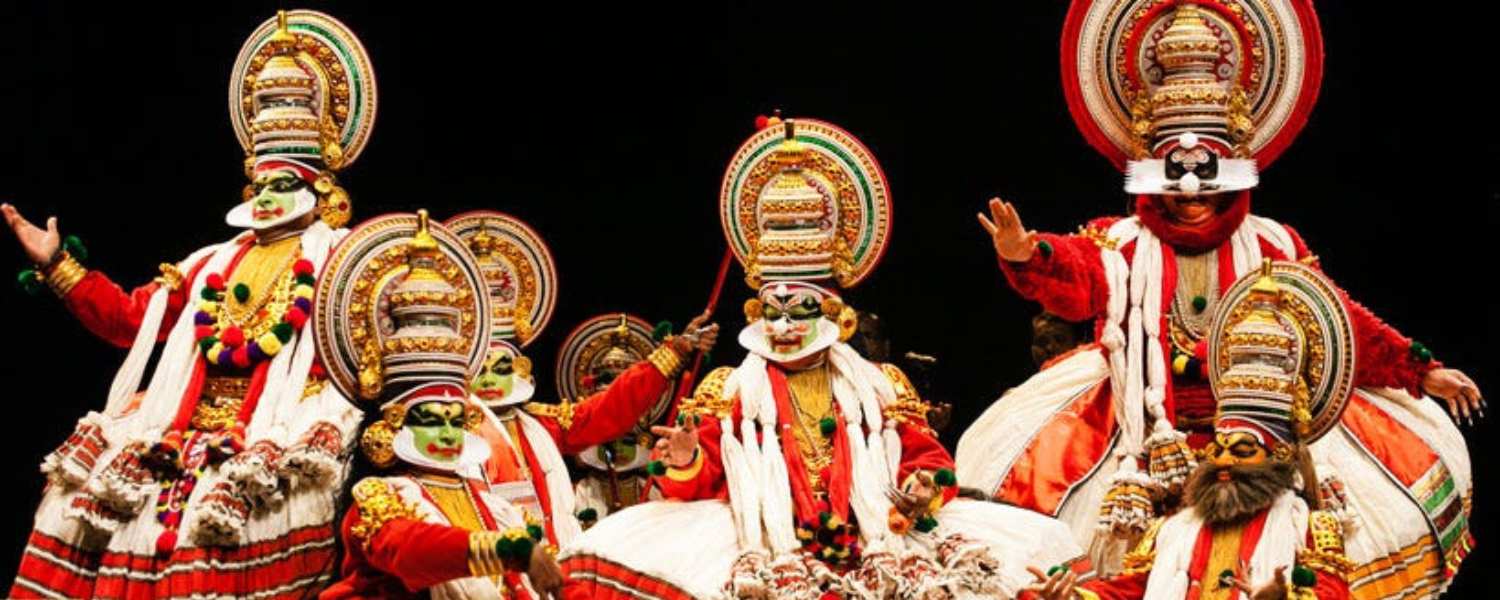
At the Chittoor temple, sacred rituals and practices form the heart of daily spiritual life.
Among these, one notable tradition is Snanam or Abhishekam, a ritualistic bathing of the deity.
This ceremony, often performed at Hindu temples, holds deep significance.
At the Temple, devotees partake in Rudra Abhishekam, specifically bathing in the Shiva Lingam.
This ritual extends beyond mere physical cleansing; it symbolizes the purification of the soul and devotion to the divine.
Alongside the pouring of sacred water, devotees chant mantras, invoking blessings upon the deity.
This daily reverence fosters a profound connection between worshippers and the divine presence within the Temple’s sanctum.
Through such rituals, devotees find spiritual solace, experiencing a sense of unity with the divine.
At the Temple, these sacred practices uphold centuries-old traditions, offering a gateway to profound spiritual experiences for all who seek them.
7. Surrounding Attractions
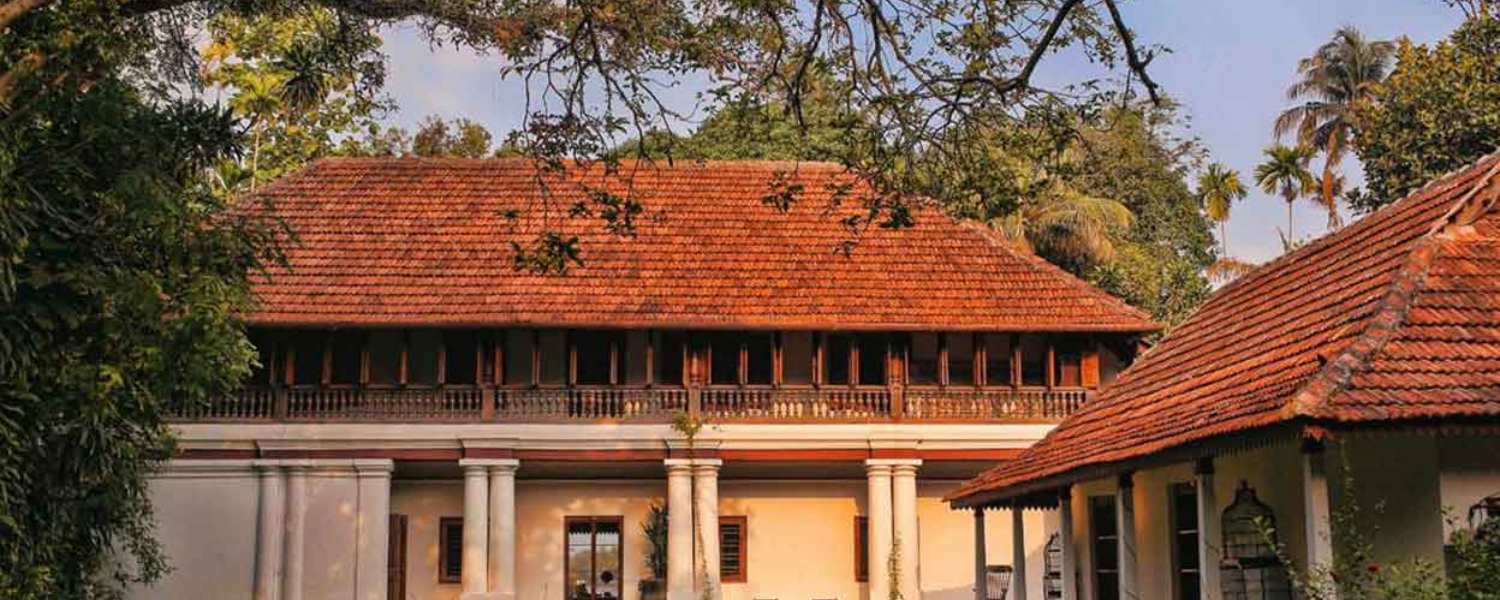
Nagalapuram, a picturesque town in the heart of nature, boasts an array of surrounding attractions that cater to both spiritual seekers and adventure enthusiasts alike.
At the forefront is the majestic Tada Falls, where gushing waters cascade amidst lush greenery, offering a serene retreat for visitors seeking tranquility.
For devotees, the revered Venkateshwara Temple stands as a beacon of spirituality, while the Kanipakkam Vinayaka Temple exudes peace and serenity, drawing worshippers from far and wide.
Kaigal Fall is an ideal location for nature enthusiasts who can immerse themselves in the scenic beauty.
The waterfall is an excellent spot to unwind and enjoy a picnic with friends and family or immerse themselves in the gurgling waters of Kailasakona Waterfall.
Surrounded by the pristine wilderness.
Additionally, the enchanting Horsley Hills provide a respite from the hustle and bustle of city life, offering panoramic views and rejuvenating experiences.
And for those seeking spiritual solace, the sacred Srikalahasti Temple beckons with its architectural grandeur and divine aura.
Making it a must-visit destination in the temple circuit.
With its diverse attractions, Nagalapuram promises a memorable experience for every traveler.
Blending natural beauty with cultural richness seamlessly.
Ready to discover more about the famous cities in Kerala And their fascinating culinary traditions? Don’t miss out! Read our blog for an in-depth exploration of these hidden gems.
8. Preservation Efforts
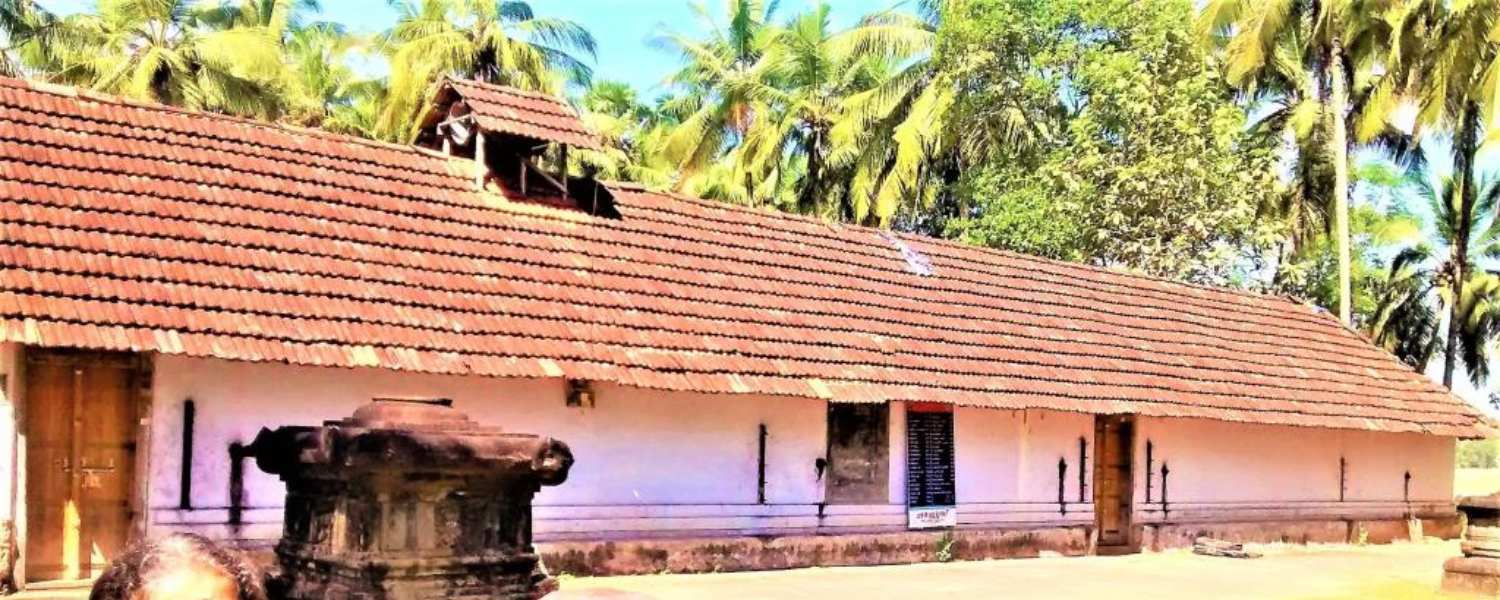
Preservation efforts for the sacred Chittoor Temple are crucial to safeguarding its sanctity and spiritual significance.
The destruction of Hindu temples not only results in physical damage but also disrupts the spiritual energy they embody.
When a deity is defiled or displaced, it loses its ability to radiate the same divine power.
Impacting the spiritual connection of devotees and seekers alike.
Thus, preserving these temples is paramount to maintaining the spiritual lifeline of Hindus and upholding their religious heritage.
Efforts to protect the Temple involve stringent measures to prevent vandalism.
Regular maintenance to conserve its architectural integrity.
And initiatives to educate communities on the importance of preserving sacred sites.
By ensuring the continued existence and reverence of the Temple.
We uphold centuries-old traditions and provide a space for spiritual nourishment and connection for generations to come.
9. Visitor Information and Accessibility
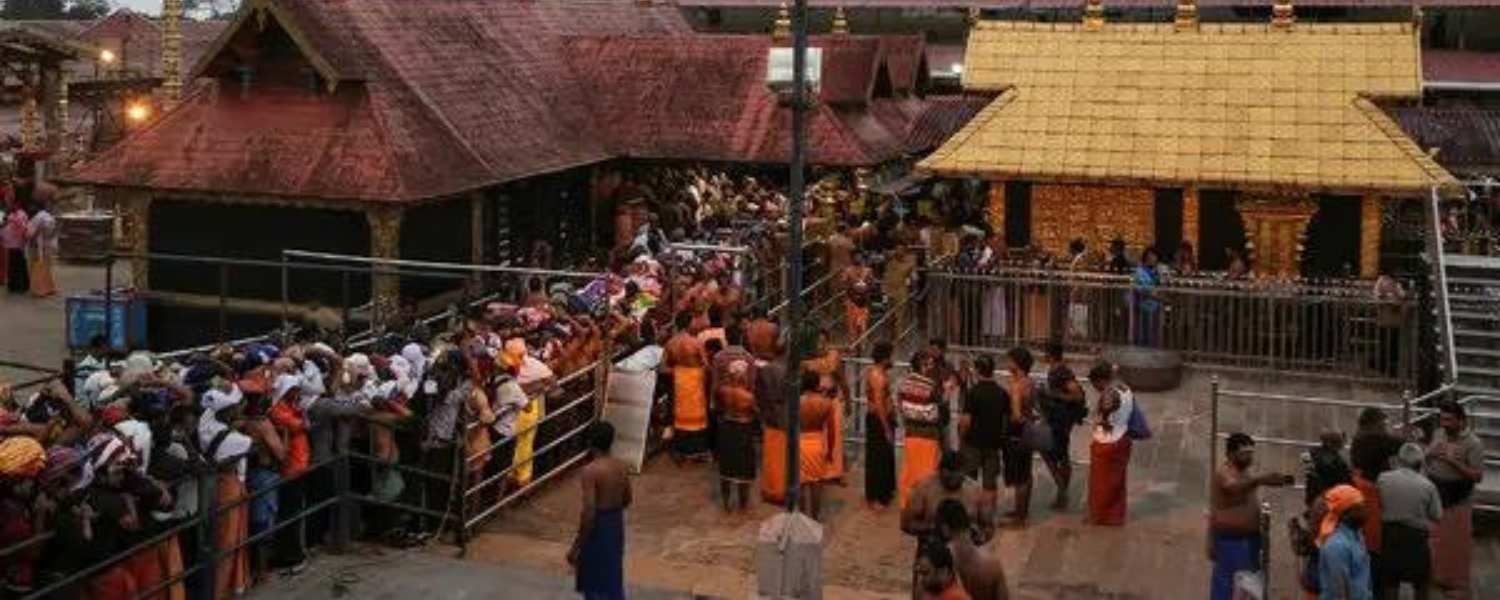
Nestled in the city’s heart, this cultural heritage of India is reflected in the Temple.
Which has been standing since the 13th century, serving as a testament to the country’s roots.
Commissioned by the esteemed Cheranelloor Swaroopam – Cheranelloor Karthas.
This architectural marvel showcases the craftsmanship of a bygone era.
For visitors, accessing this sacred site is a breeze.
The Temple is conveniently located within the city limits, making it easily reachable by various modes of transportation.
Whether traveling by car, bus, or train, you’ll find ample parking and transportation options nearby.
Once inside, visitors are greeted with serene surroundings and awe-inspiring architecture.
The Temple’s intricate carvings and majestic sculptures glimpse the region’s rich history and religious significance.
Accessibility features are also in place to ensure that all visitors can enjoy the Temple’s beauty and tranquility.
Ramps and wheelchair-friendly paths are available for those with mobility challenges.
Ensuring that everyone can experience the spiritual ambiance of the Temple.
Immerse yourself in history, culture, and spirituality at this timeless landmark.
Conclusion
The Chittoor Temple, also known as Sree Krishnaswamy Temple or Thekken Guruvayoor.
Stands as a revered shrine in Chittoor Ernakulam.
Dedicated to Lord Krishna, affectionately referred to as Chittoorappan.
This Temple is a cherished replica of the renowned Guruvayoor Temple’s deity.
As worshippers flock to this sacred site.
They are met with spiritual solace and the rich cultural heritage and architectural splendor that adorn the temple grounds.
The divine aura permeating through its intricate carvings and serene ambiance leaves a lasting impression on devotees and visitors alike.
Its historical significance and religious prominence include having a Kerala beach with no waves.
The Chittoor Temple draws devotees from far and wide.
Fostering a deep sense of devotion and reverence in the hearts of all who step foot within its hallowed halls.
Indeed, the Temple is a beacon of spirituality, unity, and faith for generations to come.
FAQ
Q: What is the famous Temple in Chittoor?
A: The most renowned Temple in Chittoor is the Sri Venkateswara Temple, also known as the Tirupati Temple.
It is a prominent pilgrimage site for devotees of Lord Venkateswara and attracts millions of visitors annually.
Q: What is the history of Chittoor temple?
A: The Temple, dedicated to Lord Venkateswara, dates back centuries.
Legends trace its origins to the ancient texts of Hindu mythology.
Over time, the Temple’s construction and development have woven a tapestry of spiritual significance and cultural heritage.
Q: Why is Chittoor famous?
A: Chittoor gained fame primarily due to the presence of the revered Sri Venkateswara Temple.
This holy site holds immense religious significance for Hindus worldwide and is a hub for spiritual seekers and pilgrims seeking blessings and solace.
Q: Why is Chittoor important?
A: Chittoor holds importance as a center of religious and cultural heritage, prominently symbolized by its iconic Temple.
Beyond its spiritual significance, Chittoor contributes to the region’s economic and social fabric through tourism and cultural activities.
Enriching the lives of locals and visitors alike.
